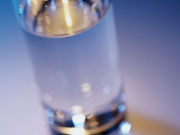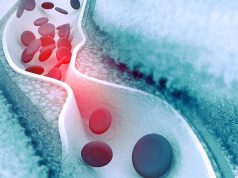Significantly reduced incidence of dementia in those exposed to more than 15.0 µg/L
FRIDAY, Aug. 25, 2017 (HealthDay News) — Lithium in drinking water is associated with the incidence of dementia in a nonlinear pattern, according to a study published online Aug. 23 in JAMA Psychiatry.
Lars Vedel Kessing, M.D., from the University of Copenhagen in Denmark, and colleagues conducted a population-based study to examine whether the incidence of dementia in the general population covaries with long-term exposure to microlevels of lithium in the drinking water. Data were included for 73,731 patients with dementia and 733,653 controls.
The researchers observed a significant difference in lithium exposure for patients with a diagnosis of dementia (median, 11.5 µg/L) and controls (median, 12.2 µg/L; P < 0.001). The association was nonlinear. The incidence rate ratio (IRR) of dementia was decreased in those exposed to more than 15.0 µg/L (IRR, 0.83; 95 percent confidence interval, 0.81 to 0.85; P < 0.001) and 10.1 to 15.0 µg/L (IRR, 0.98; 95 percent confidence interval, 0.96 to 1.01; P = 0.17), and increased with exposure to 5.1 to 10.0 µg/L (IRR, 1.22; 95 percent confidence interval, 1.19 to 1.25; P < 0.001), compared with those exposed to 2.0 to 5.0 µg/L. With Alzheimer’s disease and vascular dementia as outcomes, the patterns were similar.
“Long-term increased lithium exposure in drinking water may be associated with a lower incidence of dementia in a nonlinear way; however, confounding from other factors associated with municipality of residence cannot be excluded,” the authors write.
One author disclosed financial ties to the pharmaceutical industry.
Copyright © 2017 HealthDay. All rights reserved.








